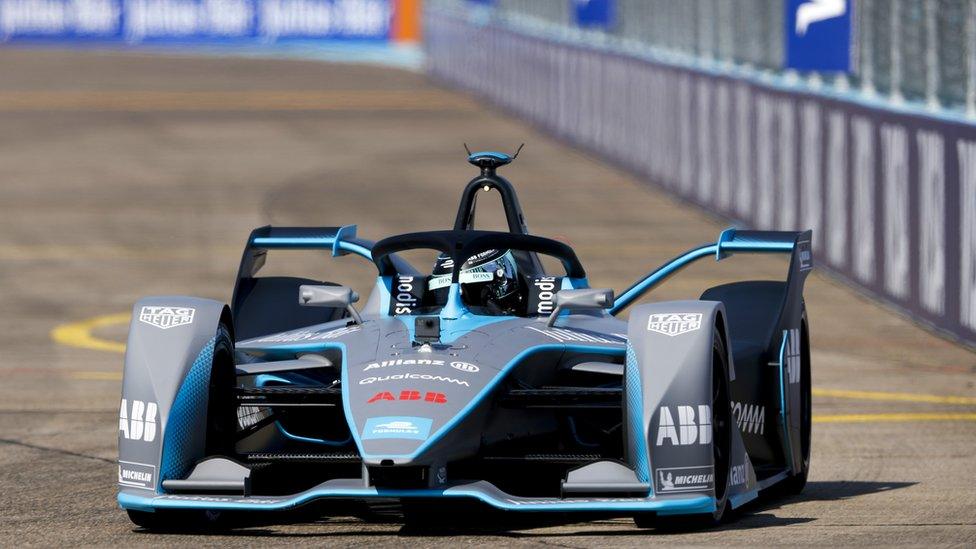Detroit auto show: Firms bet on petrol to fund electric future
- Published
Supercharged cars on display at the Detroit auto show
Electric vehicles have been the number one topic of discussion at the Detroit auto show. But big fuel guzzlers are still crucial as carmakers need traditional vehicles to fund their electric dreams.
Even before the auto show opened, General Motors and Ford had announced plans to grow their electric vehicle line-ups.
Ford said it would invest $11bn (£8.5bn) by 2020 to create a line of 40 hybrid and fully electric cars.
Cadillac, a brand owned by GM, also unveiled plans for new electric vehicle architecture.
Cadillac president Steve Carlisle says the design allows battery packs to fit into the car, the way "ice cubes fit into a tray".
That concept means Cadillac's electric cars will have front, rear or all-wheel drive using the same design. It should allow the firm to offer a wider range of electric cars.
The company didn't provide a launch date for the new vehicles. GM's chief executive Mary Barra said there would be "plenty of opportunities" in the coming year, and discussed making Cadillac GM's flagship brand for electric vehicles.
GM already makes an electric car, the Chevrolet Volt. But by making Cadillac its electric flagship, analysts say GM will try to challenge Tesla in the luxury market.
"We're in a transition period for the industry," says Michelle Krebs, an analyst with Cox Automotive.
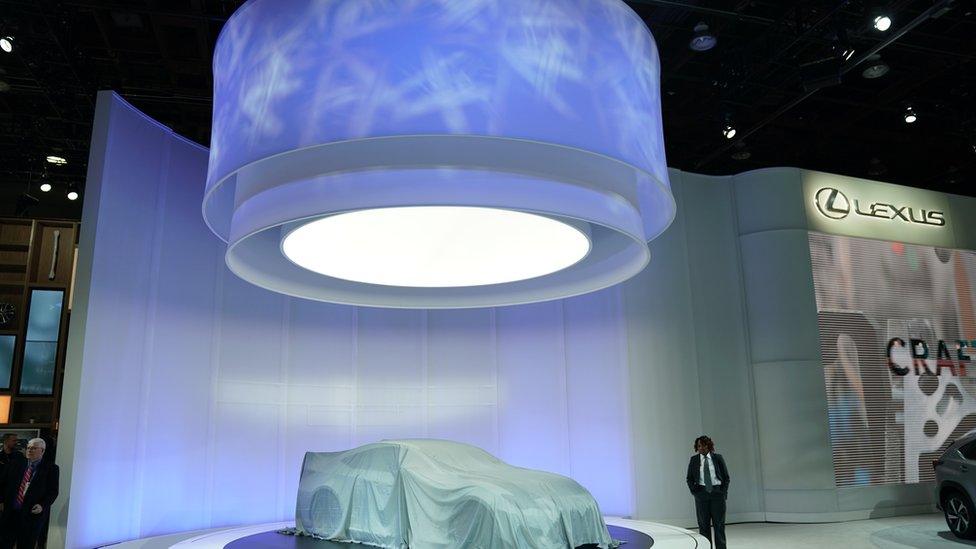
Thirty new cars were unveiled at the auto show, fewer than in previous years
According to Ms Krebs, US carmakers feel electric and autonomous cars will eventually become profitable.
In the meantime, car companies are restructuring their businesses and relying on the trusted popularity of large vehicles such as pickup trucks and sports utility vehicles (SUVs) to keep money coming in.
Electric ambitions
One of the most talked about debuts ahead of the event was the Infiniti QX Inspiration, a fully electric SUV concept car.
But the vehicle stalled at the starting line, failing to drive on to the stage when it was introduced.
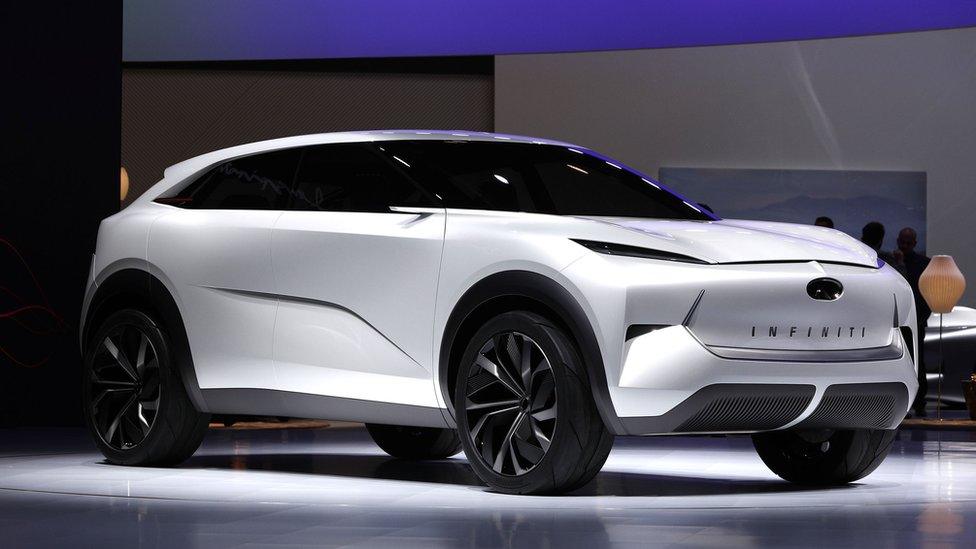
Infiniti QX Inspiration had technical difficulties as it was unveiled at the show
Despite all the hype though, there were few other new, fully electric vehicles on display at the motor show.
Before car companies can make the switch to electric vehicles, they have to pay for the investments to develop them.
For that reason, most of the car launches in Detroit were larger cars - SUVs, crossovers, and pickup trucks.
Larger cars come with bigger price tags. For the last few years, sales of larger vehicles have been the driving force behind bumper profits. American carmakers plan to stay on that path.
"Consumers want and are being steered towards the higher profit vehicles," says Brian Moody, executive editor for Autotrader.
Some of the most anticipated launches were larger or improved versions of already popular lines. One example was Cadillac's new XT6, a three-row version of its existing crossover line.
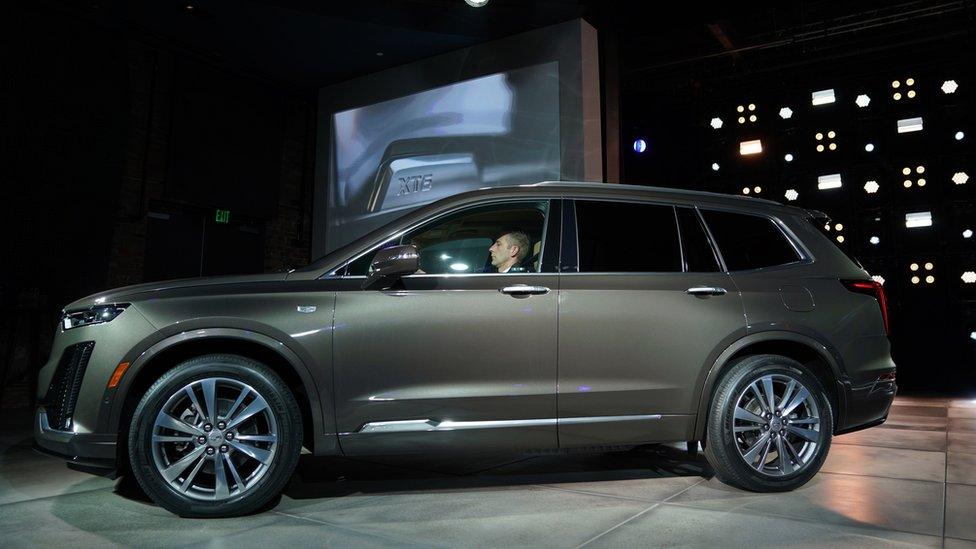
Cadillac's new XT6
Ford unveiled its new Explorer SUV. The car comes in a hybrid version that can travel up to 500 miles on a single tank of petrol.
And the production version of the 2020 Kia Telluride debuted at the show, driving on a track designed to mimic off-road journeys.
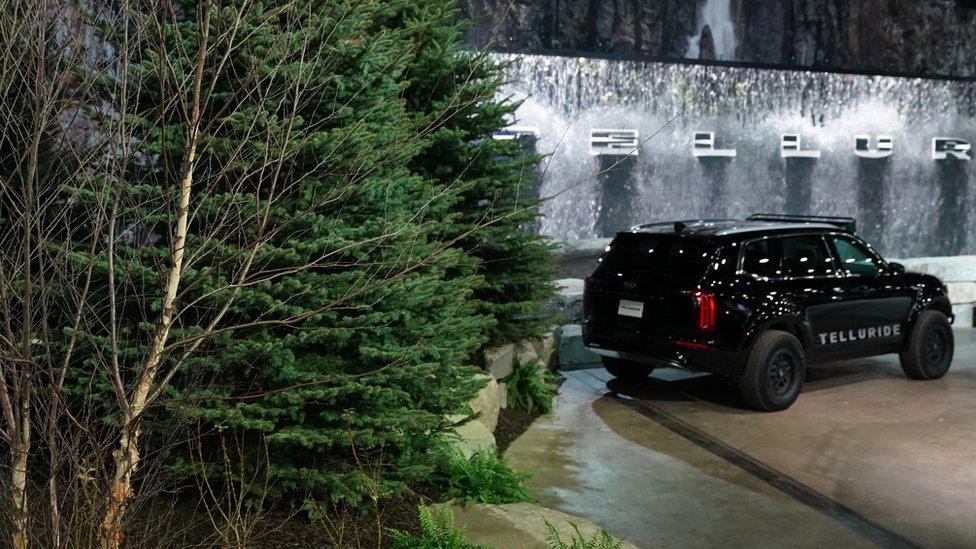
The 2020 Kia Telluride drove on an "off-road" track at the auto show
Clouds ahead
Still, some analysts are not convinced doubling down on large vehicles will keep companies profitable long enough to develop lines of electric and autonomous cars.
Interest rates are on the rise in the US. Car sales are expected to be lower in 2019. Some economists are even predicting a market downturn.
"The smart money is on manufacturers like Toyota or Lexus, Chevrolet that keep a diverse portfolio," says Autotrader's Mr Moody.
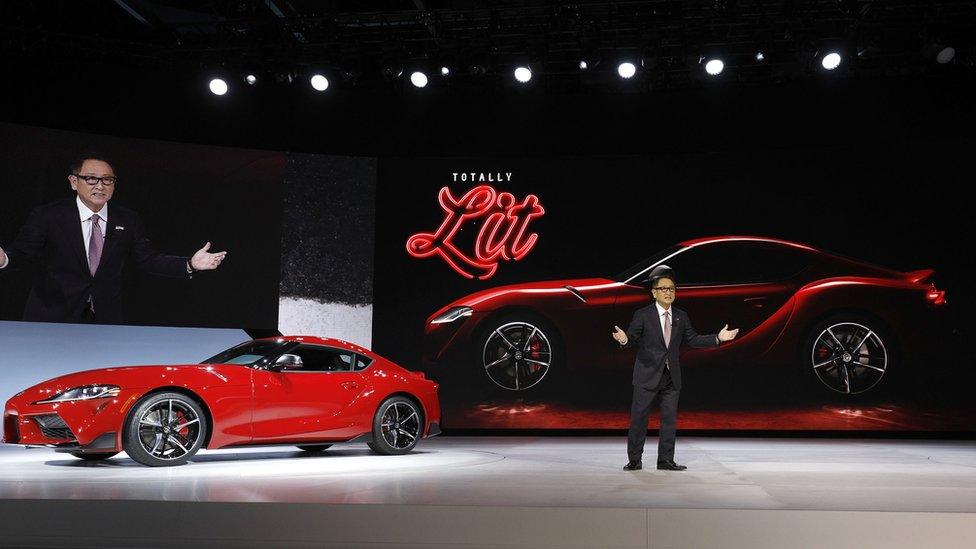
Toyota unveiled its long awaited Supra, a sports car its chief executive called “totally lit”
"Consumers need a way to go when the economy shifts."
Carmakers at the motor show clearly want to focus consumers on future technology, rather than downturns on the horizon.
But as the discussion of electric possibilities continues, consumers will be asking when these developments will finally be available.
- Published15 January 2019
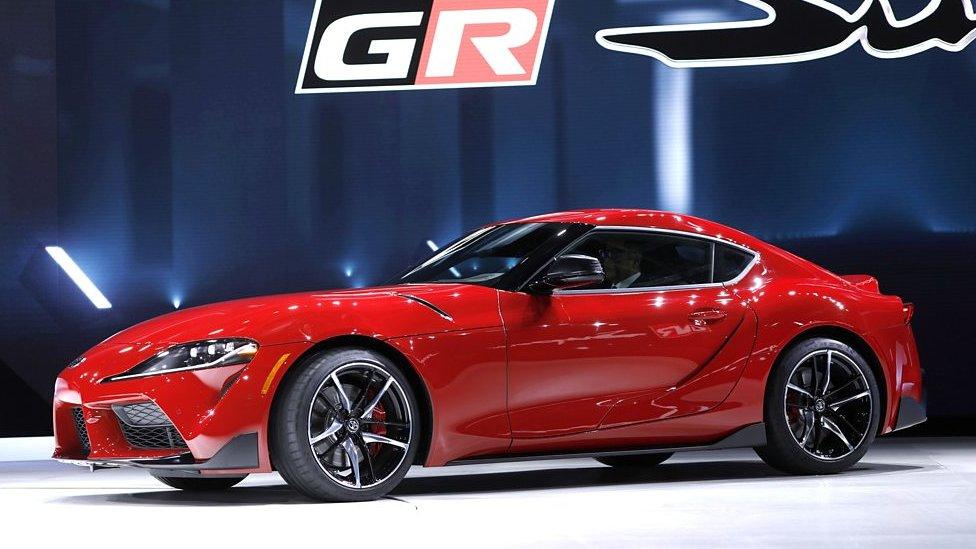
- Published14 August 2018
